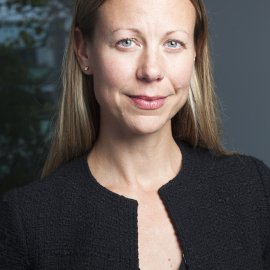Professor, Director of the Mario Einaudi Center for International Studies, the John S. Knight Professor of International Studies

Octobre 2019 à juin 2020
Rachel Rachel Beatty Riedl is the John S. Knight Professor of International Studies in the Government Department and Director of the Einaudi Center for International Studies at Cornell University. Riedl is the author of Authoritarian Origins of Democratic Party Systems in Africa (Cambridge University Press, 2014) and co-author of From Pews to Politics: Religious Sermons and Political Participation in Africa (2019). She studies institutional development in new democracies, local governance and decentralization policy, authoritarian regime legacies, and religion and politics in Africa. She has published in the Journal of Politics, Comparative Political Studies, Studies in Comparative International Development, African Affairs, among others. Riedl is the Chair of the Comparative Democratization section of the American Political Science Association. A former Kellogg Institute visiting fellow, Yale Program on Democracy Fellow, and Faculty Fulbright Scholar, she holds a PhD from Princeton University. Riedl is a member of the Council on Foreign Relations and has conducted policy analysis for USAID, the World Bank, the State Department and the Carter Center on issues pertaining to governance, elections, democratic representation and identity politics.
"urban-rural linkages in Sub-Saharan Africa: moving beyond location"
Dr. Rachel Beatty Riedl’s research deconstructs assumptions about urbanization and urbanicity, and demonstrates the empirical diversity of experiences. The project asks how urbanization as a process and experience reshapes citizens’ salient political identities, networks, strategies of social and economic engagement, and patterns of political participation. At its foundation, this project seeks to understand how the beliefs underlying human societies shape their adaptations to space and place, in relation to one another. Riedl uses original surveys, interviews and focus groups in Kenya, Senegal, and Zambia to assess the motivations and strategies of urban citizens, mapping their networks and identities to forms of political participation both in the city and in the countryside. The research also disaggregates urban-rural connections across different domains of contact and exchange, including economic investment or support, social engagement, access to justice, administrative documentation and access to the state, security, and spiritual requirements. She leverages variation in individual trajectories of urban experience to identify the effects of location for social identity, development strategies, political participation, and ultimately, human well-being.
RIEDL, Rachel & McCLENDON, Gwyneth. From Pews to Politics: How Religious Ideas Can Influence Modes of Political Engagement in Africa and Beyond, Cambridge University Press, forthcoming.
RIEDL, Rachel. “Political Parties, Regimes and Social Cleavages.”, in Oxford Handbook on Historical Institutionalism ( FALLETI, Tulia, FIORETOS, Orfeo & SHEINGATE, Adam), Oxford University Press, 2016.
RIEDL, Rachel. Authoritarian Origins of Democratic Party Systems in Africa, Cambridge University Press, 2014.
RIEDL, Rachel & DICKOVICK, Tyler J. “Party Systems and Decentralization in Africa”, in Studies in Comparative International Development, 2014, pp. 321-342.
RIEDL, Rachel & LUPU, Noam. “Political Parties and Uncertainty in Developing Democracies” in Comparative Political Studies (Special Edition on Political Parties in the Developing World), 2013.